Hamlet by William Shakespeare
Produced by Fleeing Artists Theatre
Director and Adaptor: Dylan S. Roberts
Assistant Director/Stage Manager: Kyle David Perry
Fight Director: Ben Compton
Costume Designer: Jennifer Hinojosa
Sound Designer: Dylan S. Roberts
Lighting Designer: Alex Metalsky
Director’s Note
In 1969, Swiss-American psychiatrist Elisabeth Kübler-Ross introduced the concept of The Five Stages of Grief: Denial, Anger, Bargaining, Depression, and Acceptance. She noted later on in her career that these stages do not manifest in a linear and predictable progression. I’m sure we’ve all gone through these stages at some point in our life or another.
Hamlet is a play that I’ve been studying for the majority of my adult life. Everytime I come back to the play, I see it in a new light, especially depending on my current life events. When starting the process for the run of this show, I began to look at why Hamlet treats his friends, his family and all of the women in his life, terribly. Through our modern lens, it’s a play that shouldn’t work, but the story still sticks with us.
The reason is because while the other characters in the show see Hamlet at his worst, we, the audience, see why he’s at his worst. We get to see Hamlet go through all five stages of grief and we start to get a brief semblance of why he does the things he does. In that way, Hamlet is the first in a long line of tragic anti-heroes that has continued today in the style of Tony Soprano, Don Draper or Walter White. We love rooting for flawed characters, but only if we get to see why they’re flawed.
Hamlet is often called the greatest piece of English literature and one of the greatest plays of all time. There’s only one way to know for sure. Sit back and enjoy the show!
Hamlet Trailer
Trailer created by and courtesy of Kyle David Perry
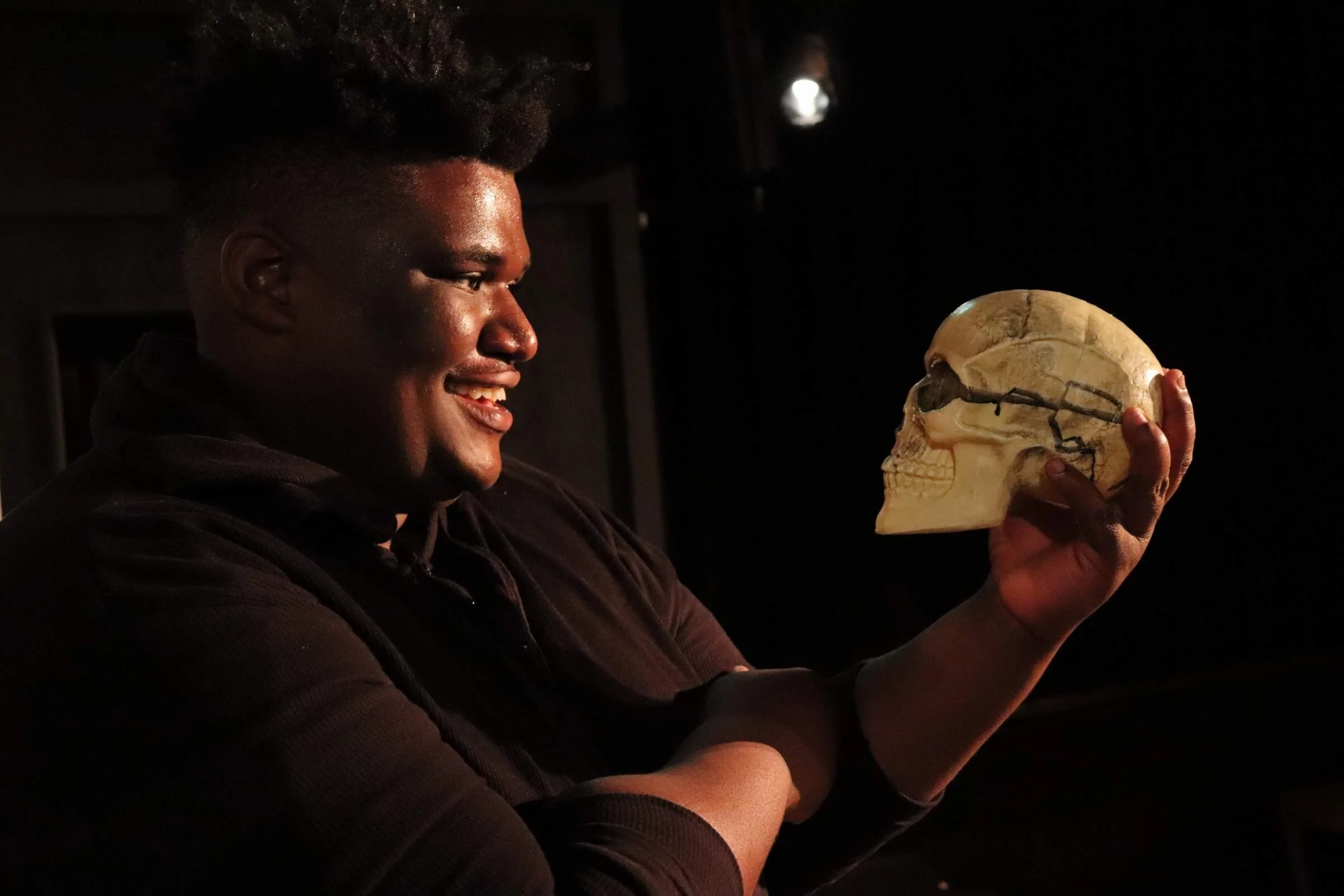
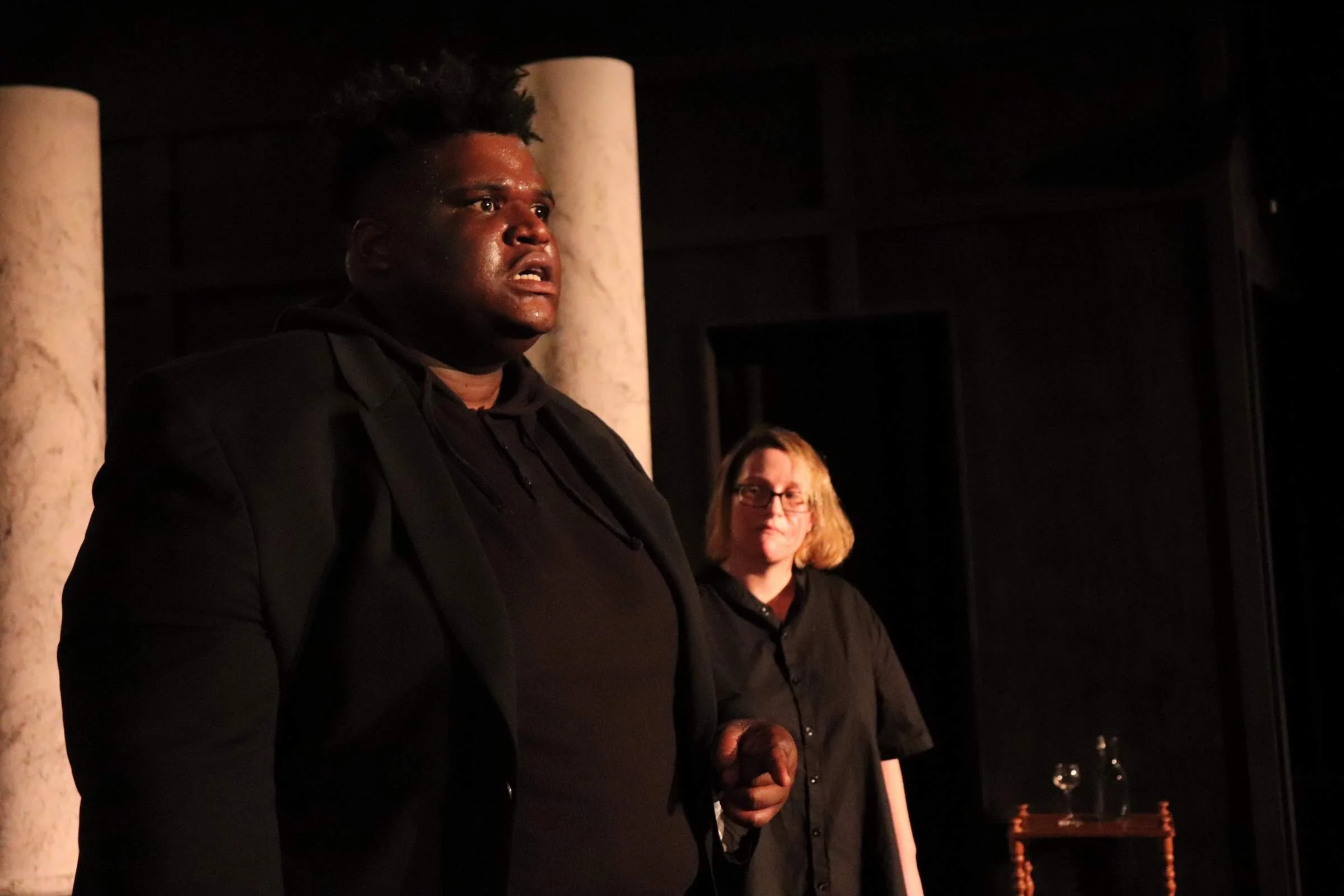
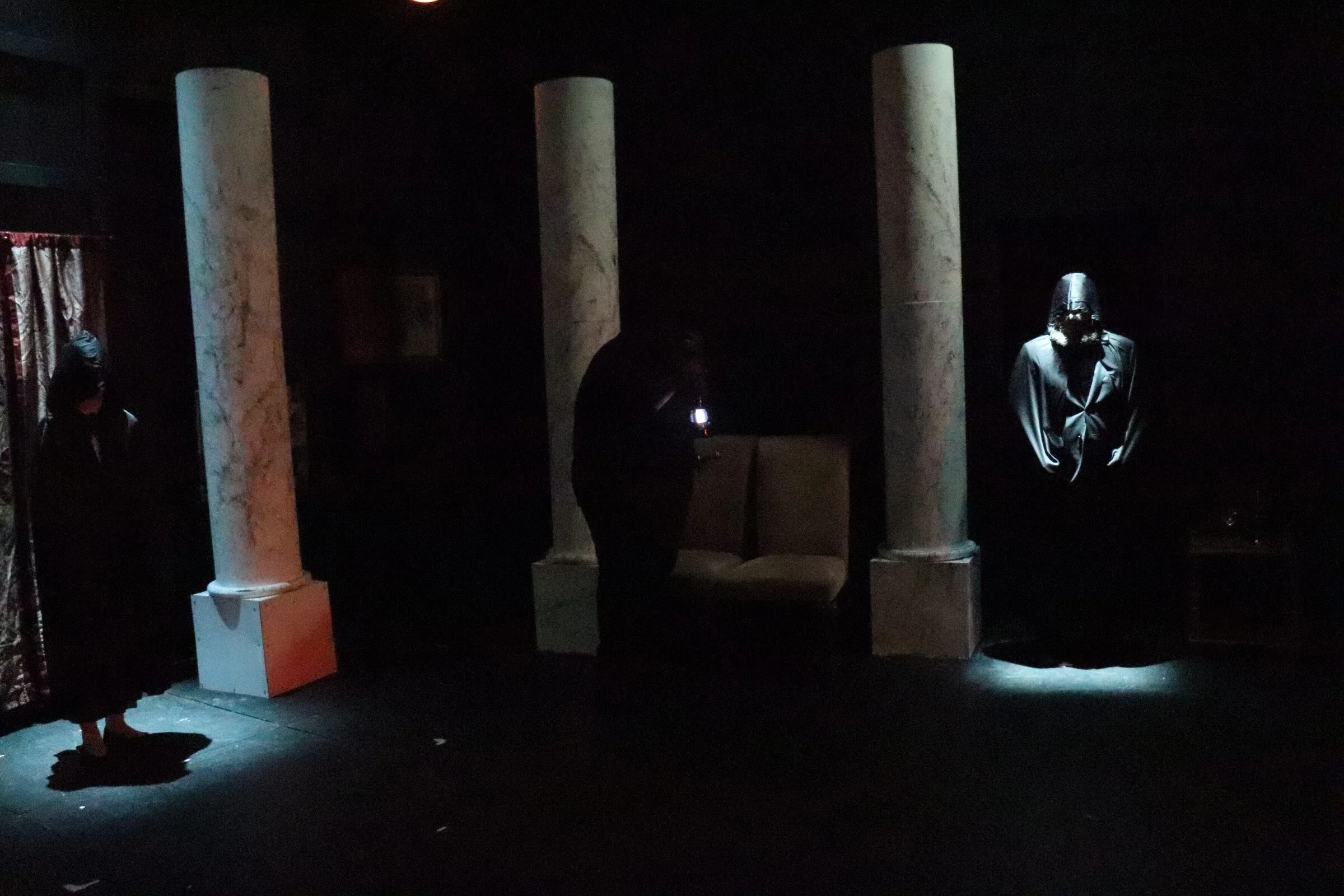

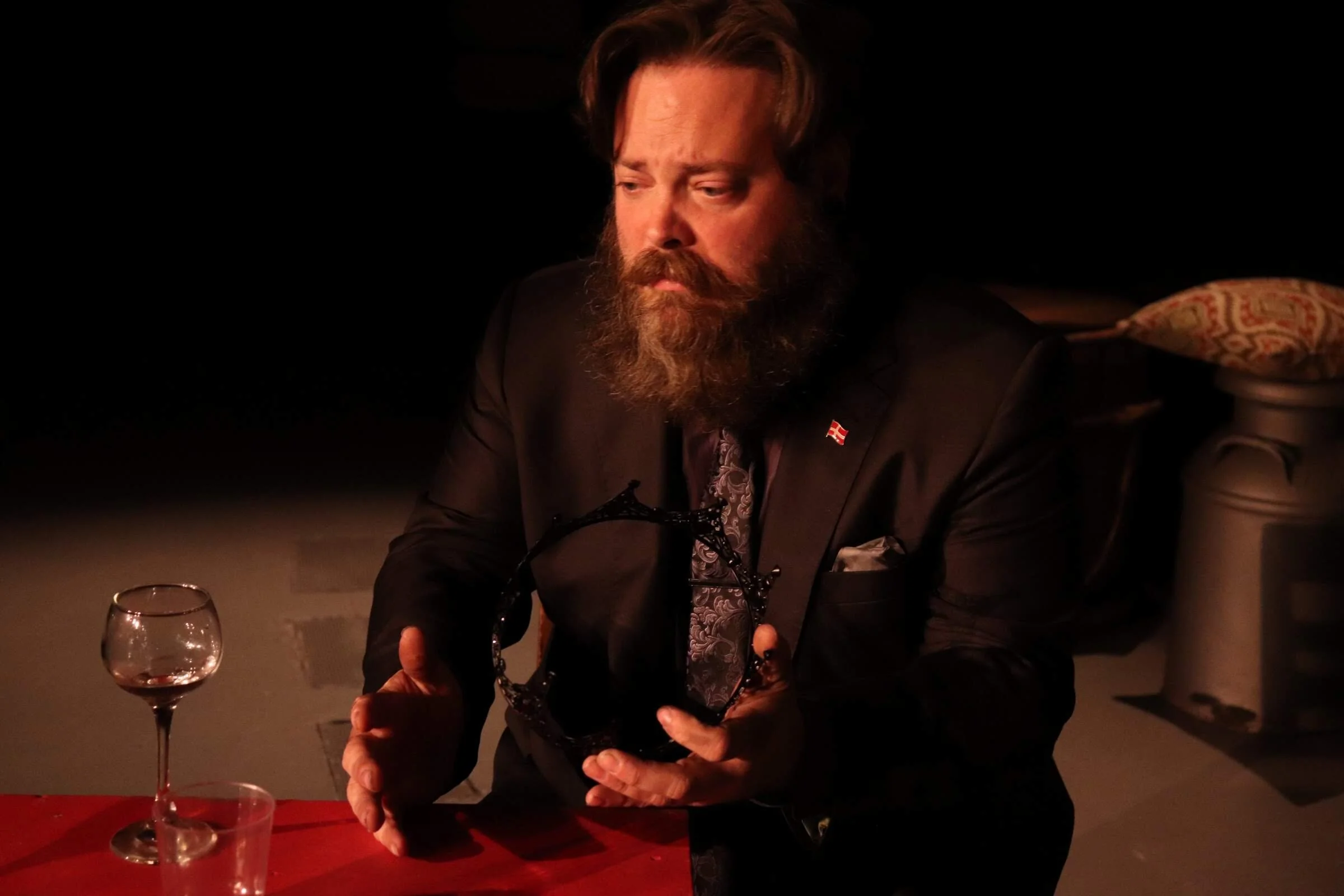
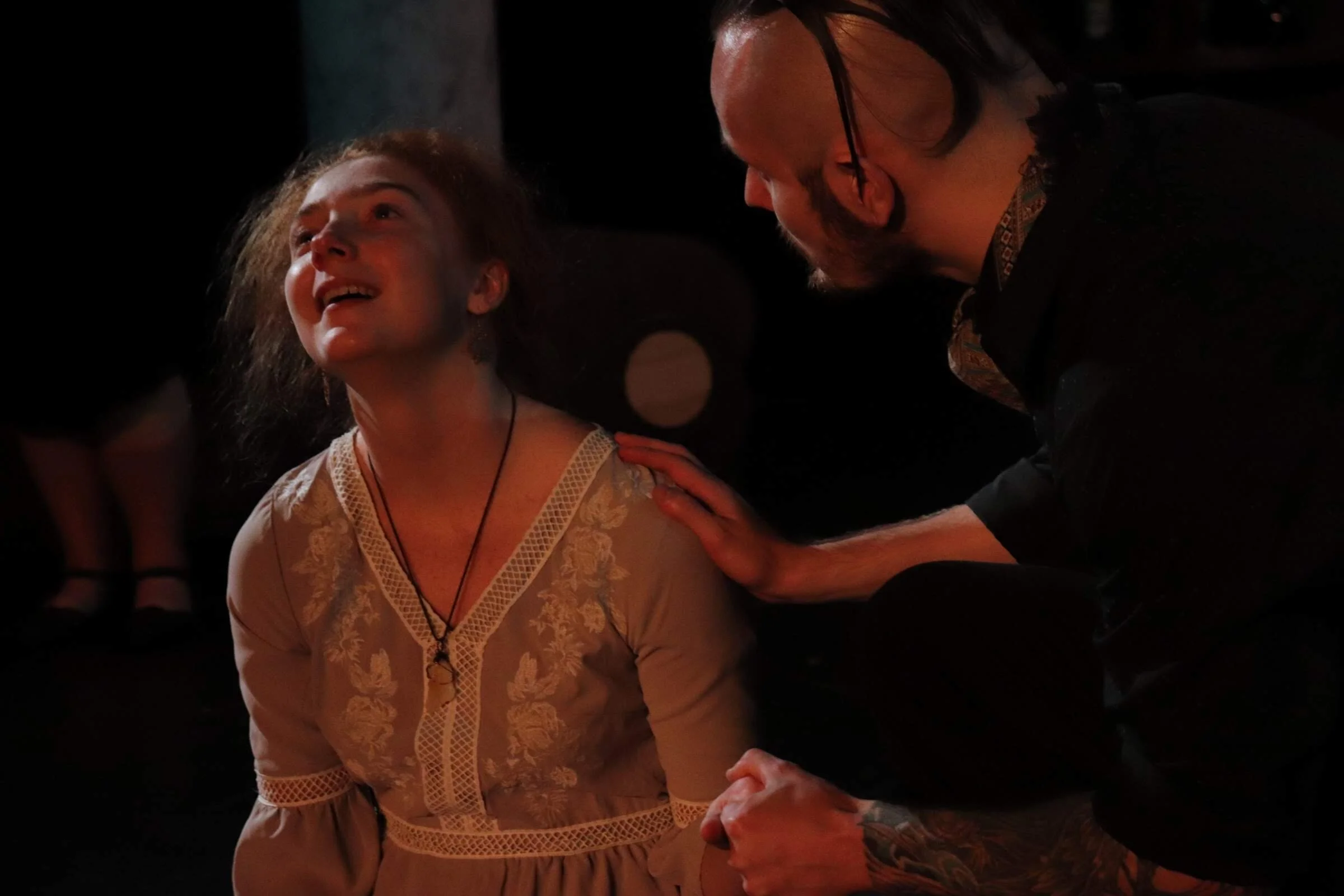
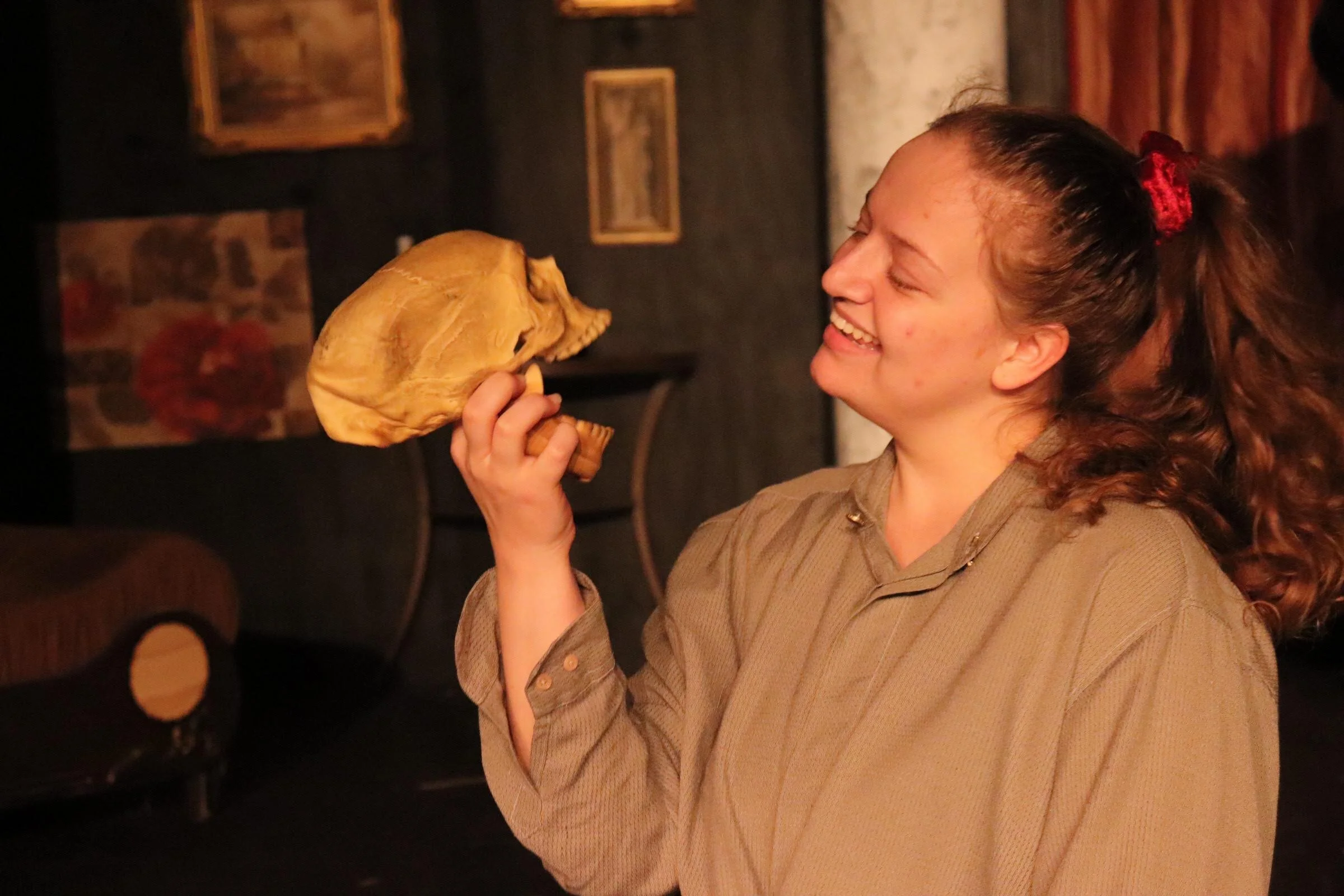
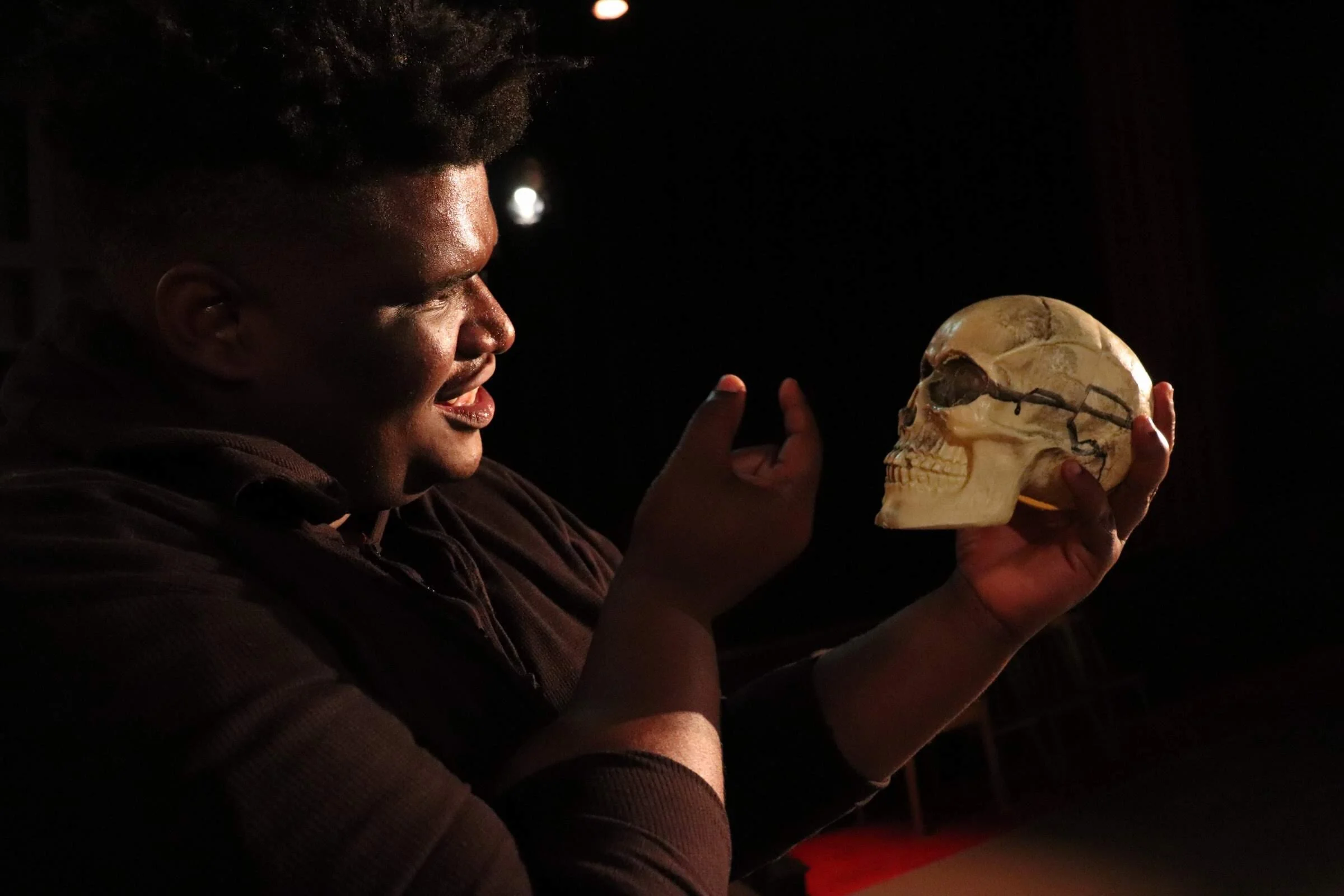
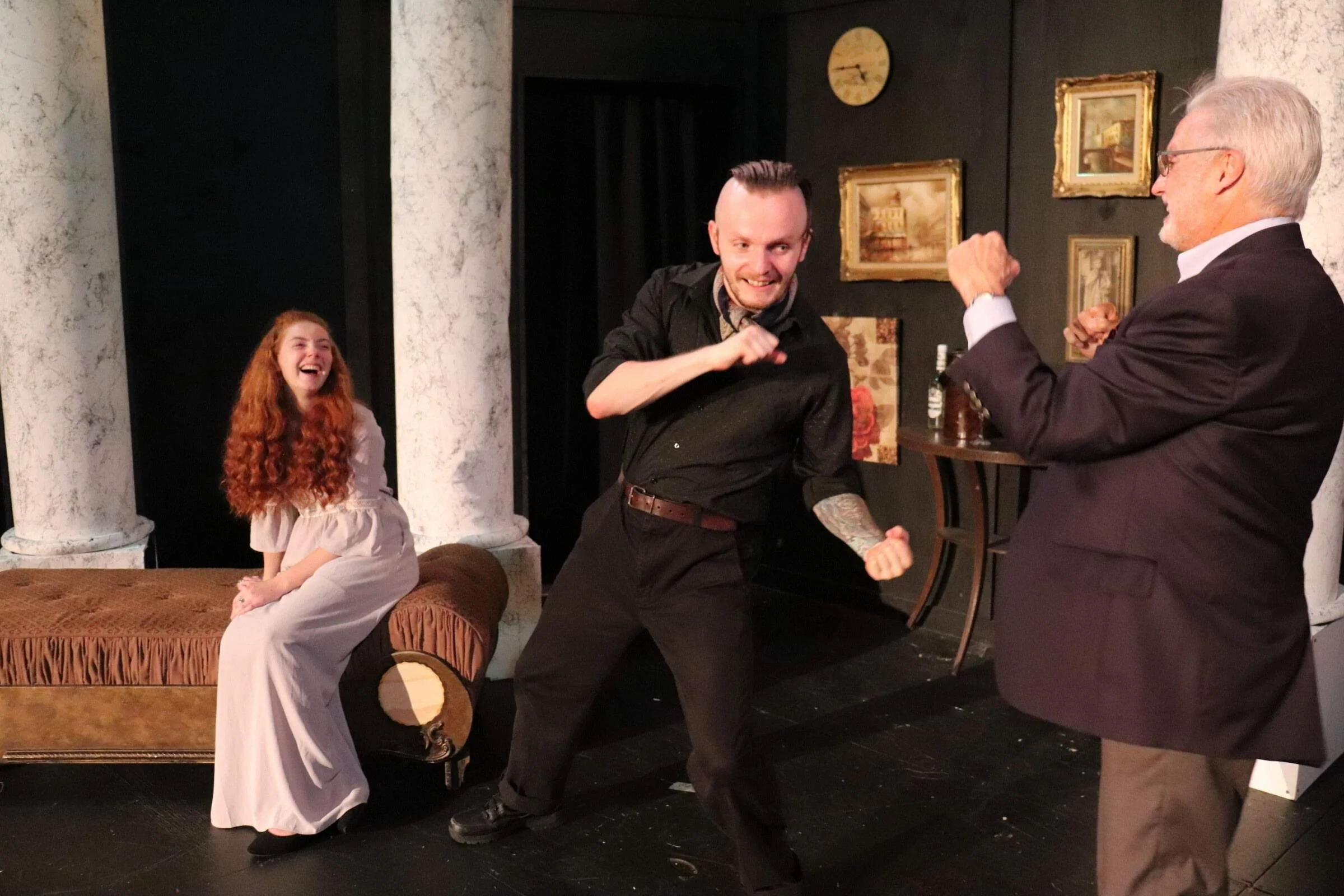
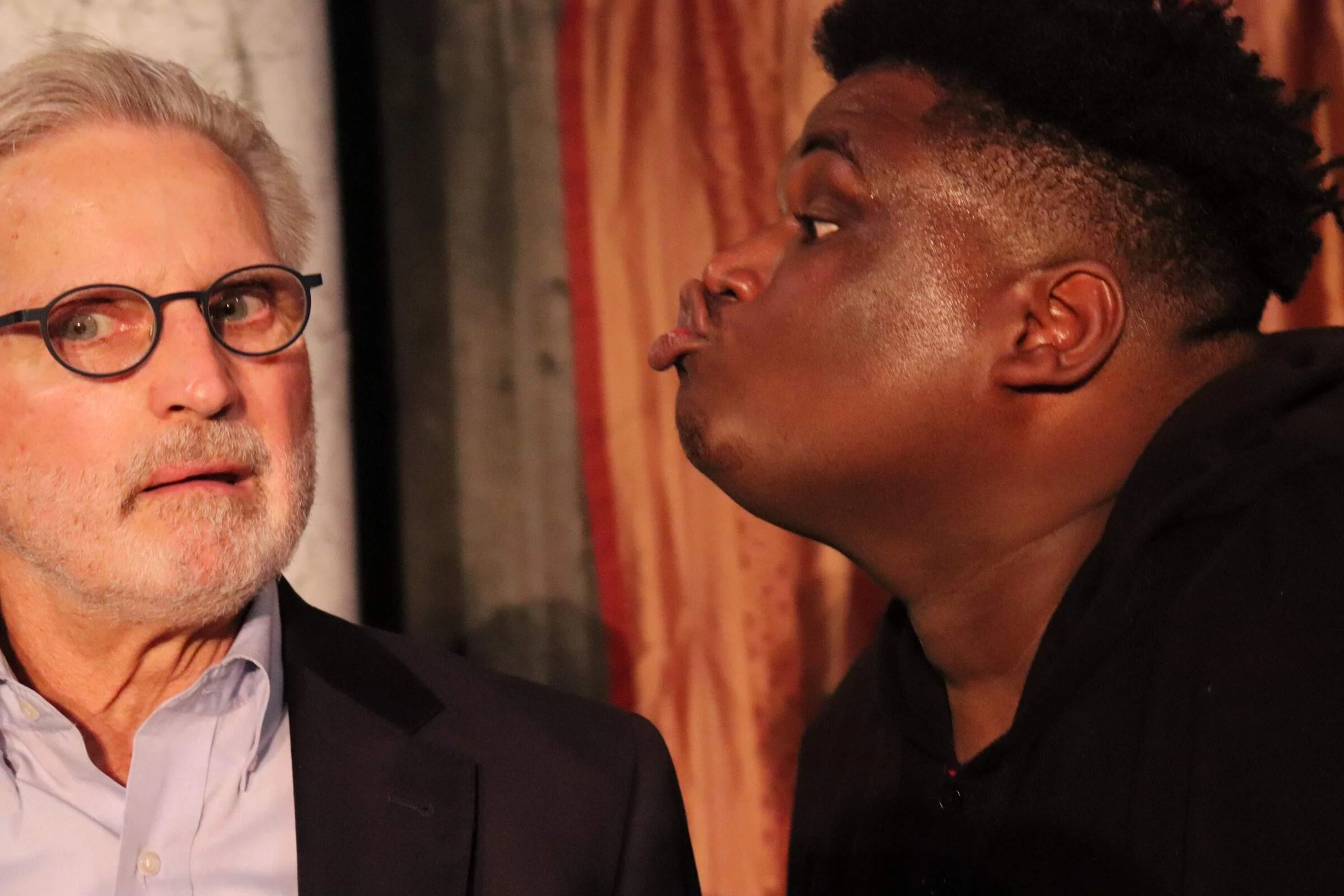

All photos courtesy of Adam Nordquist

